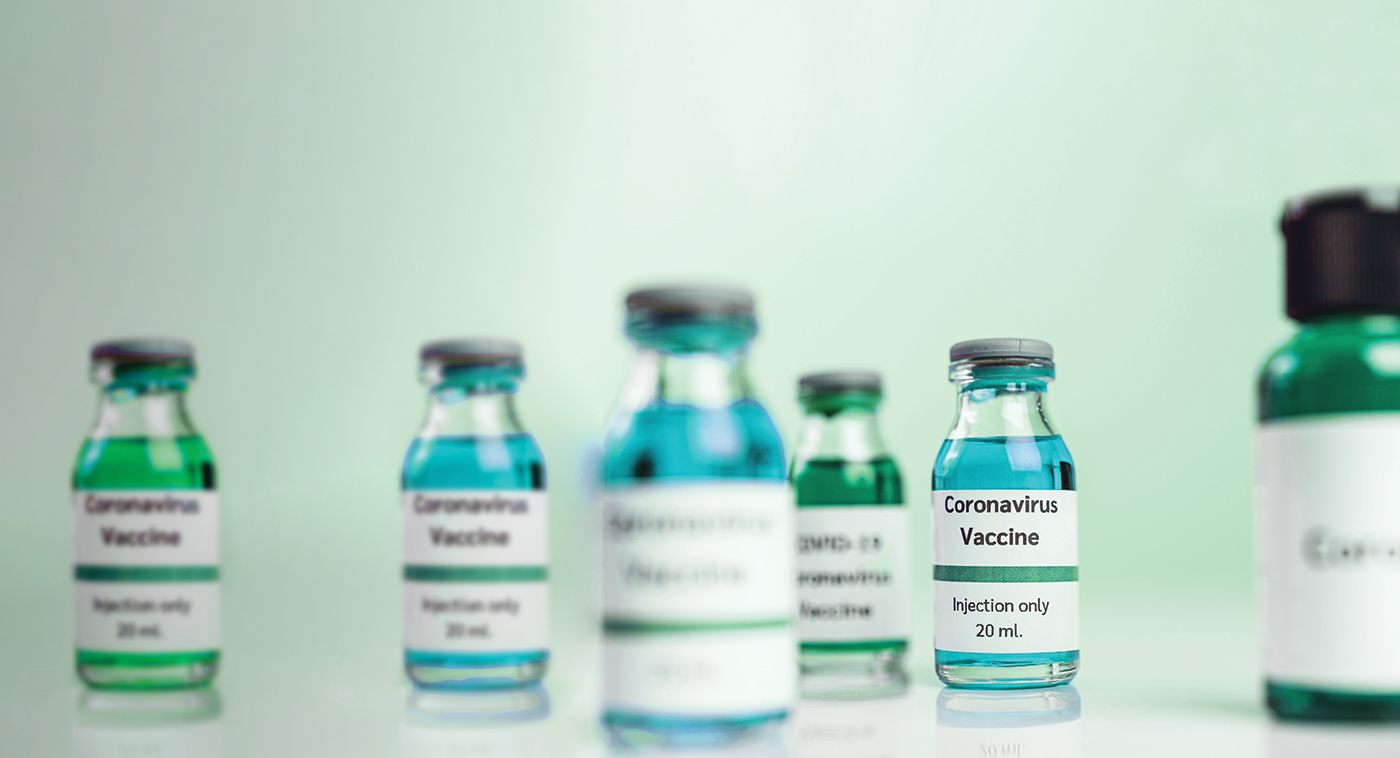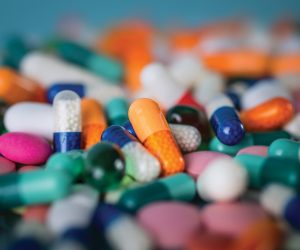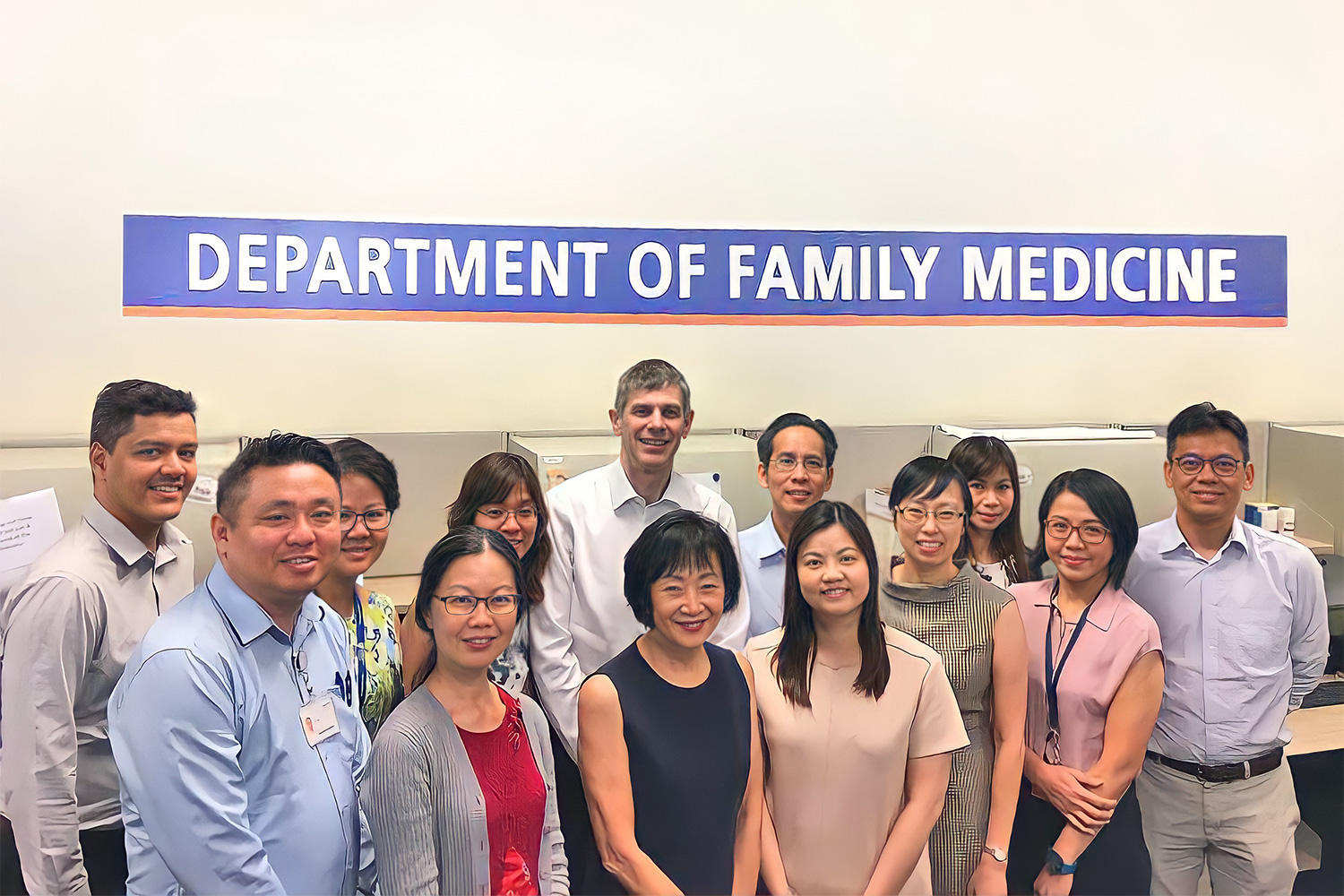
Issue 37 / February 2021
COVID-19 Special
You Can’t Always Teach an Old Drug New Tricks:
Lessons from WHO’s COVID-19 Drug Trial

The COVID-19 pandemic is unprecedented in terms of its impact on the world.
hile other pandemics have been more deadly such as the plague, cholera and great influenza pandemic, these all occurred before the modern era of antimicrobials. With the development of penicillin and other antibiotics for bacterial infections, a range of drugs for tuberculosis and malaria and even highly active antiviral agents for the human immunodeficiency virus (HIV) and hepatitis C (HCV), many previously deadly infectious diseases are no longer a death sentence.
From the start of the pandemic, doctors and scientists have been looking very hard for drugs which can be used to treat and prevent SARS-CoV-2 infection. Public health interventions such as quarantine and contact tracing were and still are widely used to prevent infection. However, once infection occurs, there was only supportive care including ICU care, oxygen and other standard medical treatments but no specific targeted options against either the virus or the host immune response. Since developing new virus specific drugs from scratch takes years (probably about 10 to 15 years on average) to move from discovery to patients, the only option initially was to consider existing licensed medicines that may also be effective in treating COVID-19 patients. This process is known as repurposing of drugs. It is not a new process and in fact, one of the most effective cardiac drugs used to treat heart attacks is aspirin which was initially developed as a fever and pain medicine from the bark of the willow tree.
When any treatment is used for a disease, especially for a brand new disease such as COVID-19, it is important to know whether the treatment works or not. This is particularly important for drugs which may have side effects which are potentially harmful to patients. The reality however, is that when the patient is in front of us, we do not have the luxury of time to wait for the results of studies published in medical journals. We tend to want our patients to get better so we use whatever drugs are available that may have some benefit. After a while, we accumulate enough data from the patients we have treated to analyse the outcomes in observational studies to report whether the drugs have any benefit at all. There have been multiple observational studies published since the early days of the COVID-19 pandemic and many have hit the headlines. These headlines have often caused controversy and paradoxically may have confused the public.
When any treatment is used for a disease, especially for a brand new disease such as COVID-19, it is important to know whether the treatment works or not. This is particularly important for drugs which may have side effects which are potentially harmful to patients.
The reason for this is that these observational studies tend to be biased and unreliable. Treatment outcomes and confounding issues may not be standardised, sometimes patients who are only moderately ill are more likely to receive certain drugs while patients who are looked after by certain physicians may receive no treatment at all based on the preferences or beliefs of the individual patients. The solution to this then is the randomised clinical trial (RCT). These clinical trials have been conducted in clinical medicine including infectious diseases for many years. In the 1960s and 70s, the definitive treatment for tuberculosis was established through the UK Medical Research Council (MRC) trials conducted in many centres including Singapore. Randomisation ensures that patients in all treatment groups are roughly comparable and the only difference is in the treatment assigned to the group. This reduces the bias found in observational studies and allows us to determine if the effect is due to the study drug itself. RCTs also have standardised end points (such as length of hospitalisation, need for oxygen or death) which ensures that the results from the different treatment arms can be accurately compared.
Multiple small randomised clinical trials have been published of the various treatments for SARS-CoV-2 initially from China and then later on from all over the world. These studies have been funded either by the drug companies who developed the drugs or national health authorities from the US, UK and China. Due to differences in study design (such as when the drugs were started), drug dosing regimens and end points, the results were often contradictory and the confusion from the observational studies was only slightly reduced.
WHO Solidarity Trial
(started on March 22)
Hydroxychloroquine
– Discontinued on June 18
Lopinavir-ritonavir
– Discontinued on July 4
Interferon
– Discontinued on October 16
Enter the World Health Organization (WHO) Solidarity Trial. In a remarkably short time the WHO Solidarity Therapeutics Trial, randomised 11,266 adults admitted to 405 hospitals in 30 countries including from Albania to South Africa. The trial design was remarkably simple—once the patients gave informed consent to participate in the trial, they were randomised online to one of up to five treatments depending on local availability of the drugs—Remdesevir, Hydroxychloroquine, Lopinavir-Ritonavir, Interferon (initially in combination with Lopinavir-Ritonavir)—and standard of care. There were no forms to fill up but the doctors in charge of the patients just had to return to the online system to report the outcomes—how long the patients were hospitalised and whether they had any serious adverse effects or died. An ‘adaptive trial design’ was used for the study which allowed investigators to drop any of the arms if it did not work in interim analyses.
The trial started on 22 March 2020—Hydroxychloroquine was discontinued for futility on 18 June 2020, Lopinavir-Ritonavir on 4 July 2020 and Interferon on 16 October 2020. An interim analysis of the patients enrolled up to 4 October 2020 was published recently as a pre-print (i.e. before peer review). These results indicate that Remdesevir, Hydroxychloroquine, Lopinavir-Ritonavir and Interferon regimens appeared to have no effect compared with standard of care on 28-day mortality of COVID-19 among hospitalised patients.
These results are quite different from the optimistic reports from studies conducted by Gilead and the US National Institutes of Health on Remdesivir—a drug initially developed to treat Ebola. There are several possible reasons for this. First, the primary end point of the Solidarity Trial is death—this is very objective—you are either dead or alive! For many of the other trials, end points have included duration of hospitalisation or time to clinical improvement both of which could be affected by other factors although the randomisation would reduce the risk of bias somewhat. It is thus possible that Remdesevir may speed up recovery in those who are going to recover but have no impact on overall survival. The same has been true of RCTs of other antivirals such as Oseltamivir for influenza.
RCTs of treatment with Hydroxychloroquine and Lopinavir-Ritonavir have not shown significant benefits. Although a small study of 127 patients in Hong Kong hospitals showed some benefit of the combination of Lopinavir-Ritonavir and Interferon, there were no deaths in that study.
While it is disappointing to note the results of the WHO Solidarity Trial, it is not all gloom as the Recovery Trial in the UK reported meaningful benefit in mortality using Dexamethasone in ICU patients but not in those not requiring oxygen therapy. This study did report an unusual and alarmingly high ICU mortality which may hamper its generalisability to other parts of the world outside the UK. The other drugs in the Recovery Trial Hydroxychloroquine (which has been published in pre-print) and Lopinavir-Ritonavir (not published but reported) also have no significant benefits similar to the WHO Solidarity Trial. This is important as reproducibility is one of the key tenets in science.
It is thus possible that Remdesevir may speed up recovery in those who are going to recover but have no impact on overall survival. The same has been true of RCTs of other antivirals such as Oseltamivir for influenza.

Many people are confused about the data from scientific research on SARS-CoV-2 which often appears on TV before it has gone through rigorous scientific peer review. That is partly due to the commercialisation of science and medicine in the modern era. Richard Feynman described the scientific method very well (although he was talking more about physics) when he said that first, we make a guess or come up with a hypothesis. Then we design the experiment and see if our guess or hypothesis is right. Feynman said “If it disagrees with experiment, it’s wrong. In that simple statement is the key to science. It doesn’t make any difference how beautiful your guess is, it doesn’t matter how smart you are, who made the guess, or what his name is… If it disagrees with experiment, it’s wrong. That’s all there is to it.”1
Thus when large RCTs which are the best designed experiments in clinical medicine are published, we can change the way we treat our patients. Sometimes it is painful as we have to give up our beliefs based on good observational studies especially when multiple large well-designed trials show the same thing. Historical examples of this problem are many, for example Vitamin A and E had in large cohort studies been shown to reduce the risk of lung cancer, however when finally a large RCT was done not only did it not work but instead the vitamins increased the risk of death in the participants. (Similar findings were observed in studies of high dose chemotherapy with stem cell transplants for advanced breast cancer where four RCTs showed no benefit compared with standard chemotherapy despite observational studies appearing to show some improvements in survival of these women).
Once again, while the results of the WHO Solidarity Trial are disappointing for clinicians who treat patients with COVID-19, there are still a number of trials underway with repurposed drugs to prevent the disease and also new drugs are in development to try to treat those infected. The WHO Solidarity Trial is really unique in that it enrolled so many patients from middle income countries who are often not included in large research trials. Also, its simple study design with minimal paperwork, online reporting and an objective meaningful end point (death!) are a model for future studies of other infectious and even non-communicable diseases in the future. Ultimately, the people benefit when we have objective data from science to guide our treatment and prophylaxis of the diseases which affect our well-being.
-
https://fs.blog/2009/12/mental-model-scientific-method/.
A version of this article first appeared in the 24 October 2020 edition of The Straits Times. Republished with the permission of Singapore Press Holdings.




